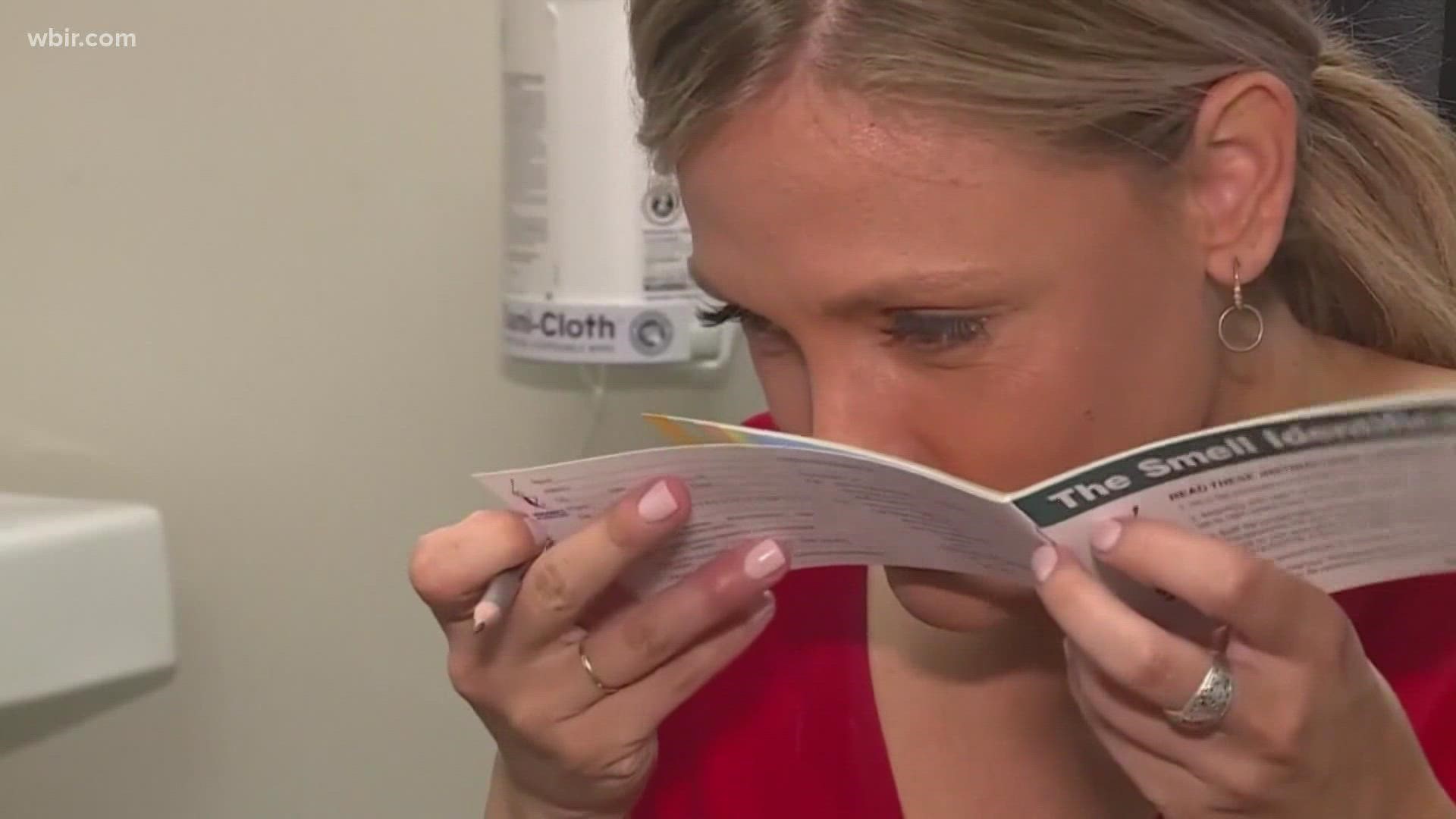KNOXVILLE, Tenn. — Research is revealing more about the long-term impacts of COVID-19. A study estimates between more than a million people have lost or had a change to their sense of smell, and many reported the changes lasting for more than 6 months.
Research written in the Journal of the American Medical Association estimates between 700,000 and 1.6 million people has experienced parosmia, a distorted perception of smells. They could also have experienced anosmia, the loss of the sense of smell, either total or partial.
According to the medial association study, changes lasted for more than 6 months in some cases. Most recovered eventually, but the research suggests those senses might never come back for some people.
December marks 1 year since Pam Bishop was diagnosed with the coronavirus. She still battles the symptoms, she said. She described her long-COVID symptoms as life-changing.
"It was you know pretty life-altering," she said. "Just that part of it aside from all the rest of the symptoms."
COVID -19 patients who’ve beaten the virus but still have debilitating symptoms are also known as “long-haulers.” Many experience changes to their sense of smell, which may not have fully returned to normal.
"For about three or four months, I didn't have my taste and smell back," Bishop said. "It still, on rare occasions, disappears. Mostly my smell disappears but on occasion, I’ll lose my taste again."
Another annoying aftereffect she said she won’t easily forget is the phantom smells. She said she can suddenly start smelling rotten fish and ammonia, seemingly out of nowhere.
Dr. Tyler Dougherty with South College School of Pharmacy said he’s met a few patients who have problems with their senses of smell or taste after recovering from COVID-19.
"Loss of taste and smell is kind of the hallmark of this disease and it can last typically for two weeks for most people, but it can last for periods of months [ for others]," he said. "That's what's hypothesized, is that the nerves that are directly related to the nose and the brain are being impacted for the patients to not be able to smell or taste."
He said he doesn't know the likelihood that a patient's smell or taste would return over time, but he says prevention is key. He urged people to get vaccinated so they wouldn't risk losing their senses.
He also said he encourages people to see a doctor if changes in smell or taste affect their appetite. The doctor may be able to help them keep down food and maintain a healthy diet.

